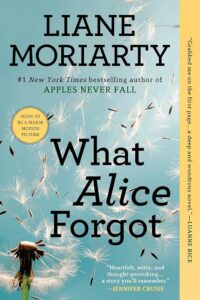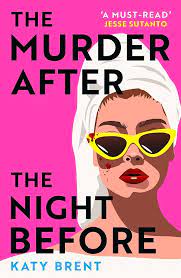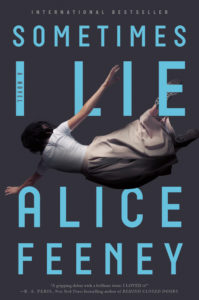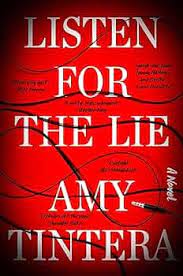The amnesia trope is a popular one in mysteries and thrillers, and for good reason. It’s a terrifying thought, having a secret locked away in your own head. Often times, the suppressed memory is of a violent event, so not only is the reader unsure if they can trust the character, the character also doesn’t know if they can be trusted!
This is what happens in my novel, Listen for the Lie. Due to a head injury, my main character, Lucy, has no memory of the night her best friend died. The evidence seems to point to her being the murderer, and everyone in her small town sure believes that, but she has no idea. I loved writing the amnesia trope, because it means that the reader and the character are solving the mystery together! And I took inspiration from a few of my favorite lost memory books:

The Girl on the Train by Paula Hawkins
A modern classic, The Girl on the Train is a favorite of mine, and, in my opinion, one of the best executions of the amnesia trope. The main character, Rachel, is an alcoholic who frequently wakes up the next morning with no memory of what she did the night before. When a woman that Rachel has been spying on from her train disappears, Rachel is sure she knows something, but just can’t remember what it is.
I love the execution of the amnesia trope here partly because it’s very realistic – drinking to the point of no longer being able to create memories is something that actually happens to people (in fact, many of us have probably had to relay previous night’s events to a friend who went too hard!). Also, the trope is used as a way to make us think about who we believe and why, which is something I explore in my own novel.

In The Woods by Tana French
Three kids go into the woods, two never come back. This book is about Rob, the third child, who is found with blood-soaked shoes and no memory of what happened to his friends. Twenty years later, he’s a detective investigating a child’s murder in those same woods. This book employs another popular amnesia trope – the trauma-suppressed memory. This is the most devastating way to use the trope, in my opinion, because it causes a sense of dread through the whole book. We want the character to remember, but we also worry that he’ll be traumatized forever if he does. The ending of this one can provoke strong opinions, and one thing is for sure – you won’t forget it.

What Alice Forgot by Liane Moriarty
Perhaps more women’s fiction than thriller, but I had to include this one on the list because it’s one of my favorite books about selective amnesia. Alice hits her head at the gym, and wakes up to discover that she’s 39, has three kids, and is about to get a divorce…which is weird, because she’s pretty sure she’s 29, pregnant with her first child, and totally in love with her husband. She’s forgotten the last decade, and she spends the book trying to solve the mystery of how her life ended up this way. I love this one because it’s all about the why, and to me, that’s the most interesting thing about a mystery. There’s no murderer to uncover, just a question of how exactly you became this person you don’t recognize. It’s actually a little scary, in a very different way than a traditional thriller.

The Murder After the Night Before by Katy Brent
Like my book, The Murder After the Night Before revolves around a woman whose best friend was murdered. In this case, Molly wakes with a terrible hangover, a stranger in her bed, and her best friend dead in their flat. To make matters worse, Molly has gone viral for performing a sex act in public with an unknown man, an act she couldn’t have consented to, considering she was too drunk to remember it. This adds another layer to the familiar blackout drunk trope – as Molly’s life falls apart because of the video, readers are left thinking about consent and social media pile-ons. The question of who the strange man is in the video haunts Molly right along with the murder of her friend, making this one hard to put down.

Sometimes I Lie by Alice Feeney
Sometimes I Lie introduces a new twist to the amnesia trope – this time, the main character is in a coma. She remembers her name, her life, her husband, but doesn’t know how or when she ended up in a hospital bed, unable to move or speak. The book alternates between the present and the recent past, as Amber attempts to figure out what happened to her. The coma is a brilliant choice, because it makes it impossible for Amber to take any action to figure out what happened. The reader feels trapped right along with her, as we try to piece together the clues and recover her memories. It’s a brilliant and terrifying execution of the amnesia trope!
***


















